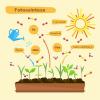
Check out this excellent post. suggestions for completing the descriptive report of the student.
Also check:
Index
It is important to consider, in the construction of the report, the following criteria:
Don't miss:
"All the wonders you need are within you."
(Sir Thomas Browne)
Download the Suggestions for completing the descriptive report shown above in PDF.
Comment on the adaptation period: Who did you stay with on the first day? How was it? How did it evolve? Show dependencies? Do you use object support? Do you take a bottle, suck a nipple?
Relationship: with the teacher, colleagues and employees. Participate in activities proposed by the teacher?
Functioning in the group: Is it accepted? Rejected? Isolate yourself? Lead? Is it aggressive? Do you show preference for colleagues? Do you cooperate with the group? Can you hear others? Do you have tics?
Tolerance to frustrations: lose and win, hit and miss.
Sphincter control resolved?
Toy: what do you prefer to play with in the living room and on the patio? How do you play (alone, with the group in small groups, with a partner)?
Autonomy: Are you organized in the routine? Do you accept rules, comply with combinations? Do you wait for the decision of others to make your own? Are you able to choose and refuse what you don't want? Do you get involved in conflicts? How do you solve them? Find your own answers? Does it explain your thoughts?
Body scheme: mastery and knowledge of your body, body image. Laterality.
Broad motricity: rhythm of action – fast, slow, follows the group, cannot stop, needs stimulation, has an inhibitory brake. Performance with balls, ropes, sung wheels, movements.
Motor coordination: rolls over the body, crawls, turns somersaults, goes up and down stairs, jumps.
Fine motor/visomotricity: coordination – buttons, knots, makes loops. Pencil hold. Colors within limits. Thread beads, crumple papers. Shaping, tearing, kneading, chopping, basting, trimming. Handle cutlery. Hit targets, copy figures.
a) Development of comprehensive and expressive language:
Do you communicate clearly, expressing your thoughts in an organized way? Do you have age-appropriate vocabulary? Do you understand verbal communications? When do you speak, stutter or exchange letters? When reporting facts, do you speak too fast, too slowly? Report in sequence? Do you always report the same facts, imaginary things? Blows balloon, candles and whistles? Are you expressive when speaking? Manifest your emotions?
b) Construction of the representation:
1. Graphic: describe the child's drawing, characterizing the stage in which it is (scribble, ordered scribble, complete or incomplete representation of the human figure, etc.).
2. Writing:
Show interest in writing? Look at books? Does it represent letters and numbers? Write your name? Do you identify names of written colleagues? What stage of literacy are you at (pre-syllabic, syllabic, syllabic-alphabetical, alphabetical)?
c) Expression through plastic arts, dances and dramatization:
Is it more expressive in any of these ways? Is it creative? Do you present original solutions? Use varied resources? Is it inhibited? Prefer non-highlighted papers? Play make-believe?
d) Perceptive development:
Vision, hearing, touch, smell and taste.
e) Attention:
Conditions of attention and concentration in games and activities, conditions to persevere in the task.
f) Memory:
Conditions for memorizing songs, verses and games.
Observations on visual and auditory memory.
g) Logical-mathematical experiments:
Subscribe to our email list and receive interesting information and updates in your email inbox
Thanks for signing up.

